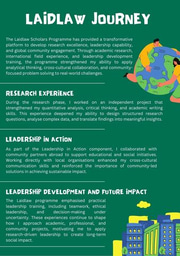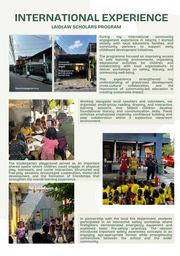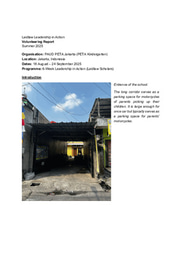During my Leadership in Action project, I worked full-time with PAUD PETA Jakarta, a low-cost kindergarten serving children from financially constrained households. My work focused on supporting daily teaching, strengthening teacher capacity, and documenting the challenges faced by families and the school. I taught reading, mathematics, and English across multiple classes, prepared lesson materials, and introduced more interactive methods for both students and teachers. I also organised a food distribution event, ran a character education workshop, and visited the foundation’s other learning sites, including those located in informal settlements.
A significant part of the project involved gathering structured insights through interviews with parents, teachers, and students. These conversations highlighted financial insecurity, inconsistent school readiness, overstretched parents, and the lack of educational materials at home. Teachers explained the pressures of handling large classes, students with special needs, and behavioural issues while relying mostly on personal funds and improvisation. Parents described unstable incomes, rising living costs, and difficulties supporting learning at home, but also showed strong commitment to their children’s education and long-term aspirations.
My main takeaways were the importance of reliable teaching support, clearer materials, and sustained communication with families. I learned that issues such as literacy gaps, discipline challenges, nutrition, and delayed school progression are deeply interconnected and cannot be addressed in isolation. I also saw how small, consistent contributions like structured lessons, tutoring, and community events can strengthen trust and improve engagement. The project gave me a more realistic understanding of the operational and social challenges faced by grassroots schools and a clearer sense of what effective, practical support looks like in this environment.



Please sign in
If you are a registered user on Laidlaw Scholars Network, please sign in